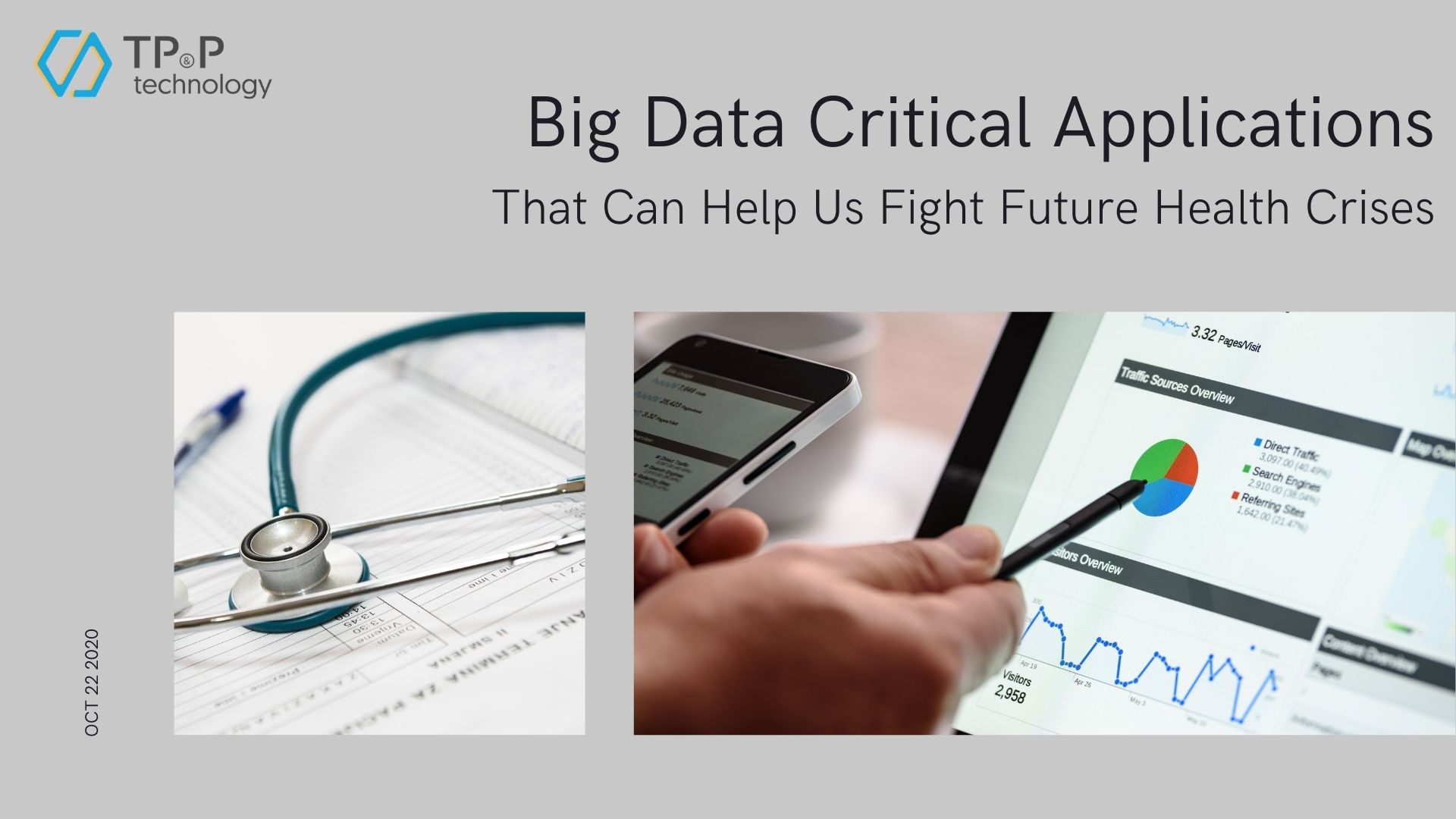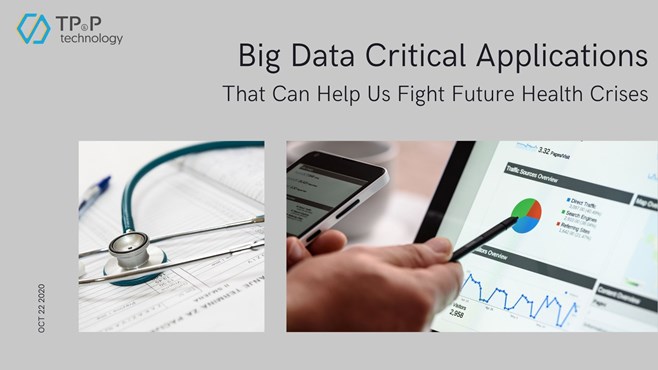
Big Data Analytics Critical Applications That Can Help Us Fight Future Health Crises
The consequences of the latest pandemic obviously raise some concerns, they also bring attention to the gap that needs to be filled in the global health industry. There is no cohesive scheme for treating an unknown disease and there is no way, other than self-report, to track results globally to see which treatment is the most effective. As one of the top big data consulting companies, we do believe, big data can come on the scene, assisting us in preventing future health crises. Big data’s applications can extend more than we thought.
With Big Data, we can gain multiple advantages when there appears another pandemic in the next 10 years.
Applying Big Data Marketing Infrastructure and Practices to Healthcare Industry
Why we should apply marketing infrastructure and practices into the healthcare industry you might ask. Well, the big data marketing infrastructure contains large-scale data that can give healthcare providers crucial insights. Through insights, we can generate solutions and ideas.
The coronavirus has exposed some of our global healthcare systems’ weaknesses. Bill Gates, the Microsoft billionaire shared with the New England Journal of Medicine that in order to prevent the later pandemic, we should have a data surveillance system that could instantly provide relevant specialized agencies like WHO, or government agencies with the information they need to predict potential outbreaks.

Medical professionals don’t have the right infrastructure to collect data, large-scale data to be exact. Although they have access to medical and scientific journals to analyze case studies, new pandemic, and other techniques, as well as textbooks on standard procedures for many health matters, these medical professionals don’t necessarily have the access to the data sets that allow them to see the success and failure rates of each treatment plan on a global scale or in parallel comparison.
Therefore, the healthcare industry could have missed out on valuable data and insights that could save many lives.
The infrastructure doesn’t have to be complicated; in fact, the simpler the better: a simple analytics program owned by a trustable authorized organization that all hospitals could enter its catalog data.
A medical system that is used worldwide by all hospitals.
Any medical practitioners who need the information of one patient who is diagnosed as, let’s say, “cancer”, can view his or her cancer type, which medical center s/he has gone to, the received treatment, duration of treatment, the side effects of the medicine, date s/he was diagnosed, and the result afterward, etc. All doctors who get accessed to this source of data in any location around the world can view and learn from this information to give better treatment to any patient with the same condition.
Because most of the treatment decisions and results are backed up by data, we can mitigate the risk of giving false medical treatment.
Could Big Data Prevent A Pandemic in the Future?
While adopting such data infrastructure cannot prevent an unforeseen epidemic, pandemic, endemic, and outbreak, it can help detect the illnesses in an early stage so that health authorities can come up with the prevention plan on a global scale accordingly. Data can also assist the practitioner to identify the most effective treatments. This results in many countries are well-prepared and ready to halt emerging viruses before they even have a chance to reach the pandemic scale.
Let’s look at the COVID-19 pandemic: only if we had known about the coronavirus’s transmission, how long it would take for symptoms to appear, we could have prevented it before it reached peak infection. Countries facing early signs could be armed with knowledge around the best practices to take in treating infected people. Personal protective equipment could have been prepared beforehand, people could have filled up their larders much sooner, and most importantly, converting buildings into makeshift hospitals with adequate beds before the illness hit the pandemic level.
Using big data for commercial purposes and improving the competitiveness in the healthcare industry
Like said, big data can provide crucial insights to healthcare providers, at the same time, using this data can help patients determine which hospital can provide the best treatment based on their health conditions.
For example, an 8-year-old patient who is diagnosed with chickenpox disease can be treated at top local hospitals which had the highest success rate in treating chickenpox. Not only this allows the patient to have data-based recommended medical options but also opens the way for hospitals to compete over the best care possible.
A large percentage of healthcare in the US is funded by the government, big data can reveal where most funding is needed. In a scenario where a hospital cited a lack of equipment or outdated facilities as the cause of death, the government could provide additional funds to that hospital to make sure it was fully equipped to be able to provide the best care.
Moving into the future of big data
Although the transition to using big data in the healthcare sector has already begun, it is slow to take off. Some have used it on a small scale, like the Paris hospitals, who have tried to identify trends around physicians demand to make sure all hospitals are well-staffed during the rush hour. But despite small used cases like this, big data usually only catch on in the larger format like in the scenario of clinical research studies.
Subsequently, the transition to a global-scale is likely still a long way to do.
But, given the clear benefits that big data can bring to the healthcare industry, we believe it’s only a matter of time before we can start to see big data applications on a larger scale. It takes a big event to see changes in everything, so maybe, this crisis is the catalyst for the next transformation.
If you want to learn more about big data consulting services, contact our expert team today to know more about what we can offer!



